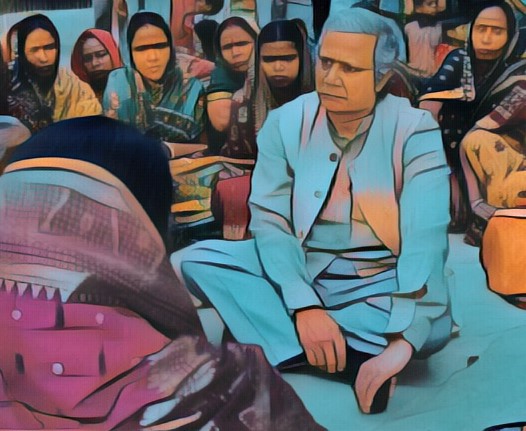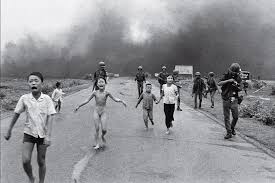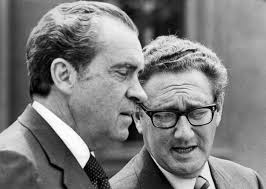
A Fraudster Since Childhood
While blaming others for authoritarian rule, corruption, and nepotism, US puppet and 2006 Nobel Peace Prize winner Prof Muhammad Yunus has established a reign of terror in Bangladesh since July 2024 by unleashing his student thugs and jihadist mobs while awarding them with indemnity, appointing close associates in important positions of the government, and widespread financial irregularities, including quashing cases and convictions and exemption of taxes, by abusing power and influencing the legal system. This fraudster and ungrateful person, who turned his Grameen Bank Project with the help of the government in 1983, is the son of razakar Dula Mia Saudagar—a loan shark and Muslim League National Guard leader—and grandchild of razakar Noju Mia from Chittagong.
Watch, Read, Listen
Love for Pakistan
The sons of Dula Mia, a goldsmith and supporter of the Pakistan Movement, were deeply committed to the Partition of India and the creation of Pakistan. For seven-year-old Muhammad Yunus, it was a moment of pride that he could feel in his veins. His dreams and hopes were fulfilled that day. “The roaring slogan resounded again and again, from every part of Chittagong—Pakistan Zindabad! At the age of seven, this was the first shot of pride and intoxicating enthusiasm for our people I had felt in my veins. Many more were to come,” Yunus writes in his book Banker to the Poor.
Son of a pious loan shark
Dula Mia was a devout Muslim all his life and went to Mecca for Hajj three times. He always wore white pajamas, a Punjabi, a cap, and sandals. His square-framed glasses and white beard made him look like an intellectual. At a young age, Dula Mia would give up his studies and devote his time to his father’s gold business. In addition to running a shop, he also traveled to different areas of Chittagong to buy and sell gold and lend money at interest. Yunus’ mother, Sofia Khatun, who gave birth to 14 children, also helped her husband in his jewelry shop. She worked with velvet, wool, and ribbon to remake gold earrings and necklaces. She used to help relatives and neighbors with the income.
Mother had suffered a lot
Yunus’ mother, Sofia Khatun, would tell the children stories about Jinnah, Gandhi, and Lord Mountbatten every evening, and the children started to embrace Pakistan. When Yunus was nine years old, his mother developed mental problems. She behaved abnormally; she would talk incoherently, shout, and abuse her children and neighbors. Sofia Khatun’s mother and two sisters had similar mental problems. Dula Mia turned to “unorthodox solutions, incantations, mumbo-jumbo, superstitions, and even hypnosis. In the course of trying to find anything that would help her, one doctor prescribed too much sedative, and she became addicted to opium.” She died after suffering for 33 years in 1982.
Band of brothers
During the partition of India, Salam, 10, was Yunus’ playmate, reading companion, and political informant. Salam would raise the flag with his friends and chant “Pakistan Zindabad.” Ibrahim, aged two, was just learning to talk. “He called the white sugar he liked ‘Jinnah sugar’, and the brown sugar which he did not like, ‘Gandhi sugar’.” Salam and Yunus would sometimes buy or borrow books, and even steal them. Shuktara magazine was their favorite. To get the magazine for free, Yunus chose a name from among the winners and wrote a letter to the editor, claiming to be the winner, and started receiving free magazines through treachery. Yunus used to steal money from his father’s cash box.
Would-be painter
While studying at Chittagong Collegiate School, Yunus and a friend learned to paint from an artist. However, all the painting materials had to be hidden at home because his father did not support drawing human figures according to Islamic rules. “So all of our extra-curricular activities had to be done in secrecy.”
Out of the darkness
Chittagong Collegiate School gave Yunus the first and foremost a change of outlook. The atmosphere was completely cosmopolitan, and they were a much more sophisticated lot than the pupils he had been with before. Scouting boosted his confidence and gave him the scope to travel to Pakistan in 1953.
Beginning of business
After completing his master’s degree in economics from Dhaka University, he started teaching at Chittagong College. Then he took a loan from a bank and joined the printing and packaging business. He found that it’d be a profitable business, made his father the chairman of the company, and got a loan from Industrial Bank.
Love for America
In 1969, Yunus went to America to do his PhD on a Fulbright scholarship at Vanderbilt University in Tennessee and later became an Assistant Professor of Economics at Middle Tennessee State University.
Vietnam War
At the height of the Vietnam War, Yunus, along with other foreign students, “quite naturally joined anti-war rallies and protest marches.” His leftist Bengali friends hated him for his positive opinions about America. “But I wrote back to my friends at home: ‘The United States is a beautiful country. My life would have been unfulfilled if I had not come here and seen this place, and experienced the personal freedom they enjoy here.’”


Bangladesh Liberation War
When the Liberation War began, 31-year-old Yunus, along with other Bengalis in America, including former East Pakistani embassy officials, teachers, and students, campaigned for the recognition of an independent Bangladesh, the release of Prime Minister-elect Sheikh Mujibur Rahman, and stopping US military aid to Pakistan. On March 27, Yunus was elected secretary of the Bangladesh Citizens Committee. On March 30, Yunus wished to form the provisional government of Bangladesh but binned the idea after receiving a bitter message of disappointment in the leaders. Soon the Mujibnagar government was formed.
“Prof Yunus was far above accountability due to his fame and prestige; he was a symbol of arbitrariness and nepotism; he frequently traveled abroad for personal gain and publicity; he acted capriciously even during the bank’s deep crisis; he disabled board members by destroying the chain of command; he was reluctant to hand over power and responsibilities; he adopted inhumane policies in promotions and transfers. Grameen Bank drifted away from principles and philosophies for various reasons.”
Khandaker Mozammel Haque
General Manager, Grameen Bank
January 1, 2000